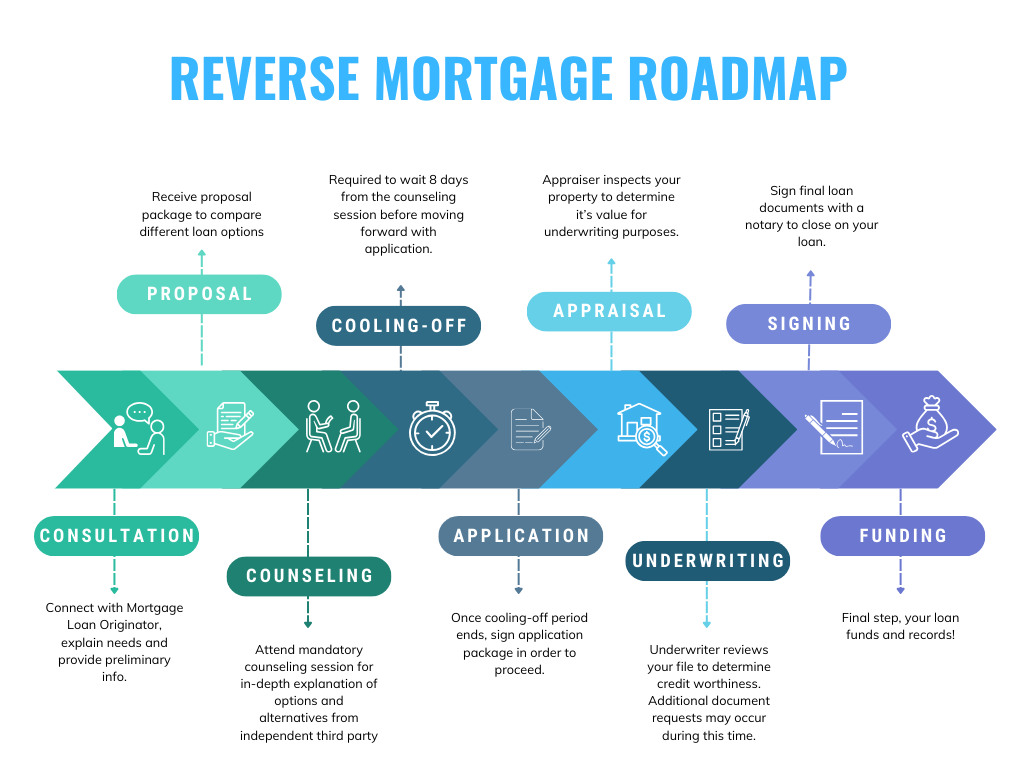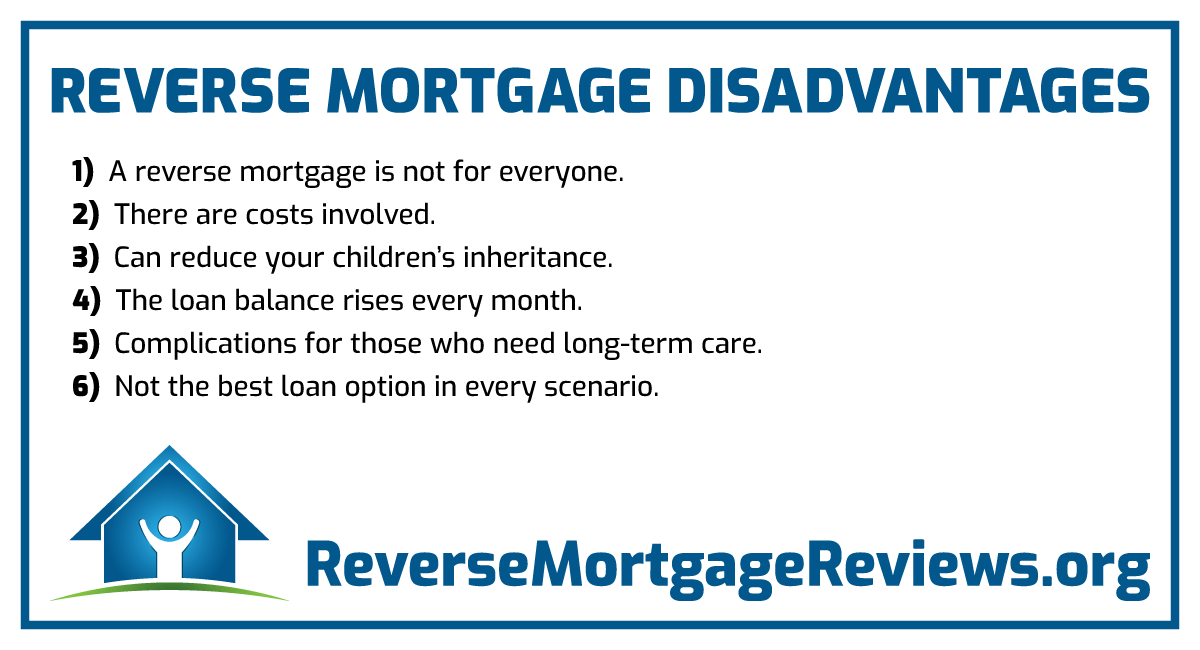Top Reasons to Purchase Reverse Mortgage for Homeowners Over 62
Top Reasons to Purchase Reverse Mortgage for Homeowners Over 62
Blog Article
Empower Your Retirement: The Smart Way to Purchase a Reverse Home Mortgage
As retired life approaches, numerous people look for reliable strategies to improve their monetary freedom and well-being. Among these techniques, a reverse home loan arises as a viable option for property owners aged 62 and older, enabling them to touch right into their home equity without the need of month-to-month settlements.
Understanding Reverse Mortgages
Comprehending reverse home loans can be vital for home owners looking for economic adaptability in retired life. A reverse home mortgage is an economic item that permits qualified house owners, normally aged 62 and older, to transform a part of their home equity into money. Unlike standard home loans, where debtors make regular monthly repayments to a lending institution, reverse home loans allow property owners to get payments or a round figure while preserving possession of their residential or commercial property.
The amount available through a reverse home mortgage relies on a number of elements, including the home owner's age, the home's worth, and current rate of interest. Significantly, the funding does not have to be settled until the house owner sells the home, relocates out, or dies.
It is vital for prospective customers to understand the effects of this monetary product, consisting of the impact on estate inheritance, tax obligation considerations, and recurring obligations connected to residential or commercial property upkeep, taxes, and insurance policy. Furthermore, counseling sessions with licensed experts are often called for to guarantee that consumers fully understand the conditions of the loan. Generally, a comprehensive understanding of reverse home mortgages can equip home owners to make informed choices about their monetary future in retired life.
Benefits of a Reverse Home Mortgage
A reverse mortgage uses several compelling advantages for qualified property owners, particularly those in retired life. This financial tool permits senior citizens to transform a portion of their home equity right into cash money, providing important funds without the requirement for month-to-month mortgage payments. The cash gotten can be made use of for various functions, such as covering clinical expenditures, making home improvements, or supplementing retirement income, therefore boosting total economic adaptability.
One significant advantage of a reverse home mortgage is that it does not require repayment until the house owner leaves, sells the home, or dies - purchase reverse mortgage. This function enables retired people to maintain their way of living and fulfill unanticipated costs without the burden of monthly payments. Additionally, the funds received are commonly tax-free, permitting home owners to use their cash money without concern of tax obligation ramifications
Moreover, a reverse home loan can offer assurance, knowing that it can offer as an economic safeguard throughout difficult times. Property owners also retain possession of their homes, guaranteeing they can continue living in an acquainted atmosphere. Eventually, a reverse mortgage can be a critical economic resource, empowering senior citizens to handle their financial resources effectively while appreciating their golden years.
The Application Process
Browsing the application process for a reverse home mortgage is an essential step for homeowners considering this economic choice. The first phase involves reviewing qualification, which generally calls for the house owner to be at the very least 62 years of ages, own the residential property outright or have a low home mortgage balance, and inhabit the home as their primary home.
Once qualification is confirmed, house owners should undertake a counseling session with a HUD-approved therapist. This session guarantees that they totally understand the ramifications of a reverse mortgage, consisting browse around this site of the responsibilities involved. purchase reverse mortgage. After finishing therapy, applicants can continue to collect essential documentation, consisting of evidence of earnings, possessions, and the home's value
The following step involves sending an application to a lender, who will certainly assess the monetary and residential or commercial property credentials. An appraisal of the home will certainly additionally be conducted to identify its market price. If accepted, the lender will provide loan terms, which ought to be examined meticulously.
Upon acceptance, the closing process complies with, where final papers are authorized, and funds are paid out. Understanding each phase of this application process can substantially boost the home owner's confidence and decision-making concerning reverse home loans.

Key Factors To Consider Before Purchasing
Buying a reverse mortgage is a significant financial choice that calls for cautious consideration of several vital elements. First, understanding you can look here your qualification is critical. Property owners must go to least 62 years old, and the home has to be their key home. Assessing your financial demands and goals is equally vital; figure out whether a reverse mortgage lines up with your long-term strategies.

A reverse home loan can impact your qualification for particular government advantages, such as Medicaid. By completely assessing these considerations, you can make a more informed choice regarding whether a reverse mortgage is the right economic approach for your retirement.
Taking advantage of Your Funds
When you have actually secured a reverse home mortgage, successfully handling the funds becomes a top priority. The adaptability of a reverse home loan allows homeowners to make use of the funds in different ways, yet calculated planning is necessary to optimize their benefits.
One vital technique is to create a spending plan that describes your financial objectives and regular monthly expenditures. By determining necessary costs such as healthcare, residential or commercial property tax obligations, and home maintenance, you can allot funds appropriately to make certain long-lasting sustainability. In addition, consider making use check it out of a portion of the funds for financial investments that can generate earnings or value over time, such as common funds or dividend-paying stocks.
One more vital aspect is to preserve a reserve. Setting apart a reserve from your reverse home loan can aid cover unforeseen expenses, giving comfort and monetary security. Furthermore, consult with an economic advisor to check out feasible tax obligation implications and exactly how to incorporate reverse home mortgage funds right into your overall retirement method.
Ultimately, prudent administration of reverse home loan funds can improve your economic safety and security, enabling you to enjoy your retirement years without the anxiety of economic uncertainty. Cautious preparation and educated decision-making will certainly make certain that your funds work efficiently for you.
Final Thought
In conclusion, a reverse home mortgage offers a practical economic method for seniors looking for to improve their retired life experience. By converting home equity right into easily accessible funds, individuals can attend to important expenses and protected added financial sources without incurring regular monthly settlements.
Comprehending reverse home mortgages can be important for homeowners seeking economic flexibility in retired life. A reverse mortgage is a monetary item that allows eligible home owners, generally aged 62 and older, to transform a portion of their home equity into money. Unlike traditional home loans, where consumers make regular monthly repayments to a lending institution, reverse mortgages allow home owners to receive repayments or a swelling amount while maintaining ownership of their residential or commercial property.
Generally, a complete understanding of reverse mortgages can equip homeowners to make educated choices regarding their financial future in retired life.
Seek advice from with an economic advisor to explore feasible tax obligation implications and exactly how to incorporate reverse home loan funds right into your total retired life approach.
Report this page